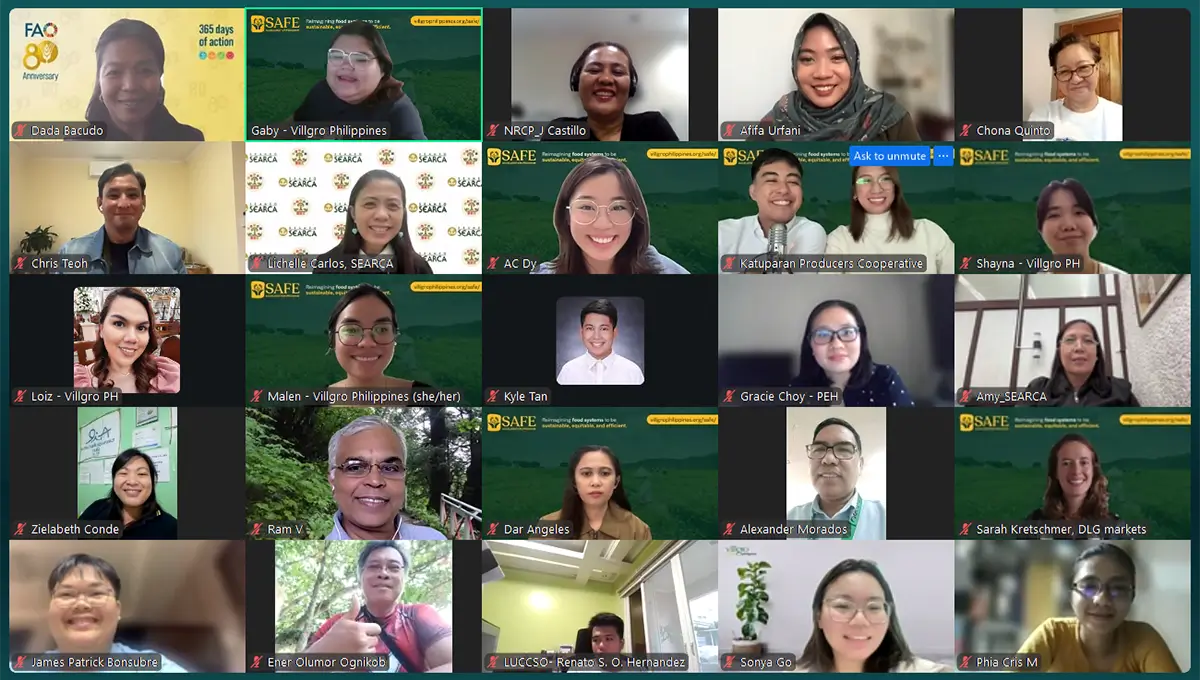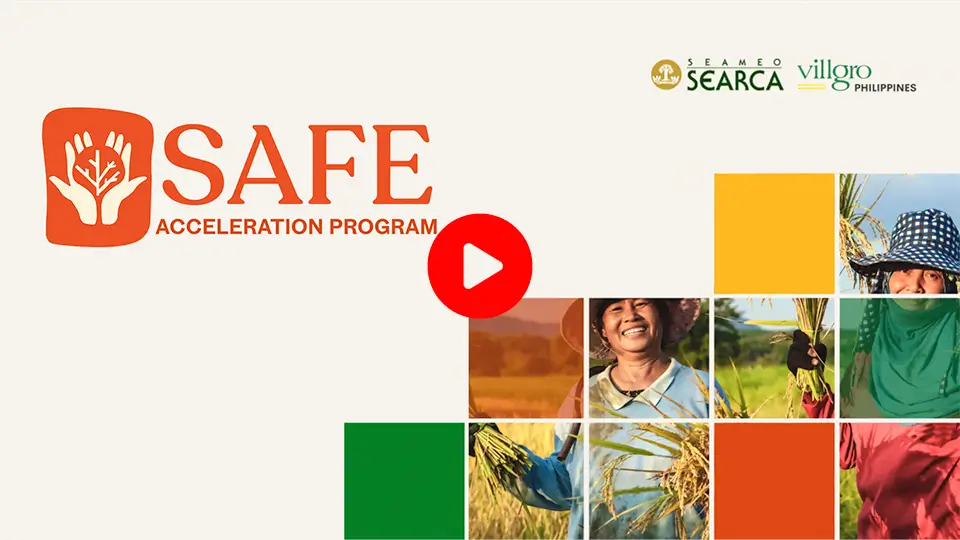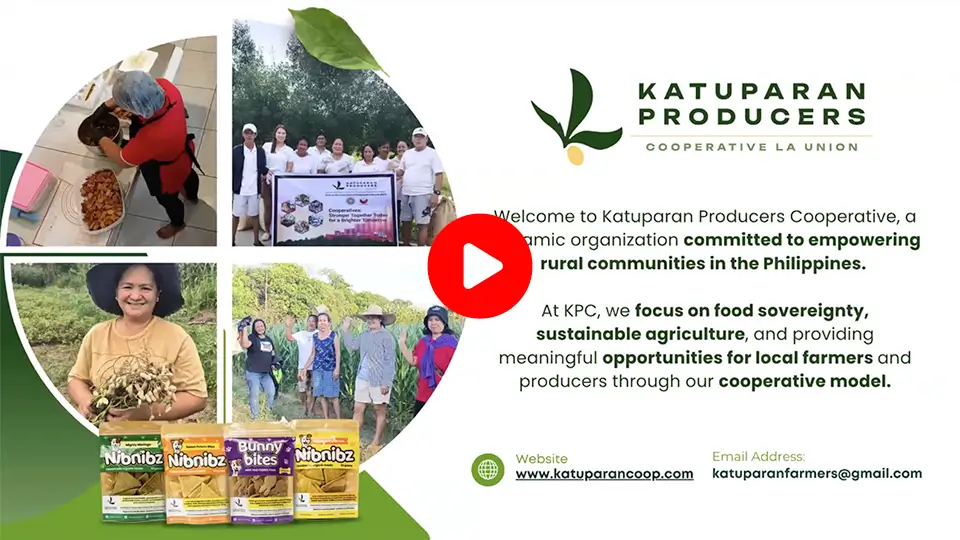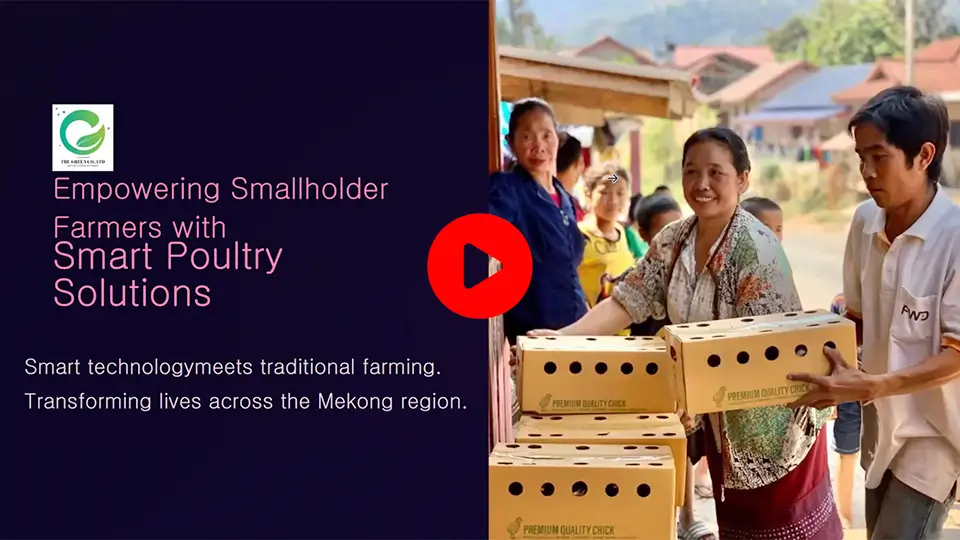LOS BAÑOS, Philippines—Under the banner of the Sustainable Agriculture and Food Security Enhancement (SAFE) Acceleration Program—a collaboration between the Southeast Asian Regional Center for Graduate Study and Research in Agriculture (SEARCA) and Villgro Philippines—three gender-inclusive agri-enterprises in Southeast Asia made notable strides in scaling climate-resilient business models.
Launched earlier this year, the program provided a platform for mentorship, market validation, and investment readiness for early-stage enterprises. Over four months, participants engaged in diagnostic panels, learning labs, masterclasses, self-paced modules, peer learning, and 36 hours of one-on-one mentorship with 16 experts and trainers. Culminating in the SAFE Impact Showcase on 3 October 2025, the online event highlighted progress and potential from enterprises in Lao PDR, the Philippines, and Timor-Leste.
"We are proud to stand with entrepreneurs who are turning challenges into opportunities for farmers and communities. We aim to scale up solutions that improve farmer incomes while ensuring environmental stewardship and social inclusion," said Dr. Nur Azura binti Adam, SEARCA Deputy Director for Programs.
She added that the initiative resonates with SEARCA's 12th Five-Year Development Plan, focused on the Sustainable Transformation of Agricultural Systems through Innovation in Southeast Asia (SUSTAIN Southeast Asia).
In a region facing mounting climate and food security pressures, enterprise-led, scalable solutions are being prioritized as a key strategy.
"Real transformation in food systems begins when those who produce our food are no longer treated as beneficiaries, but as builders of the future," said Priya Thachadi, Co-Founder and CEO of Villgro Philippines.
Agri-Enterprise Spotlights
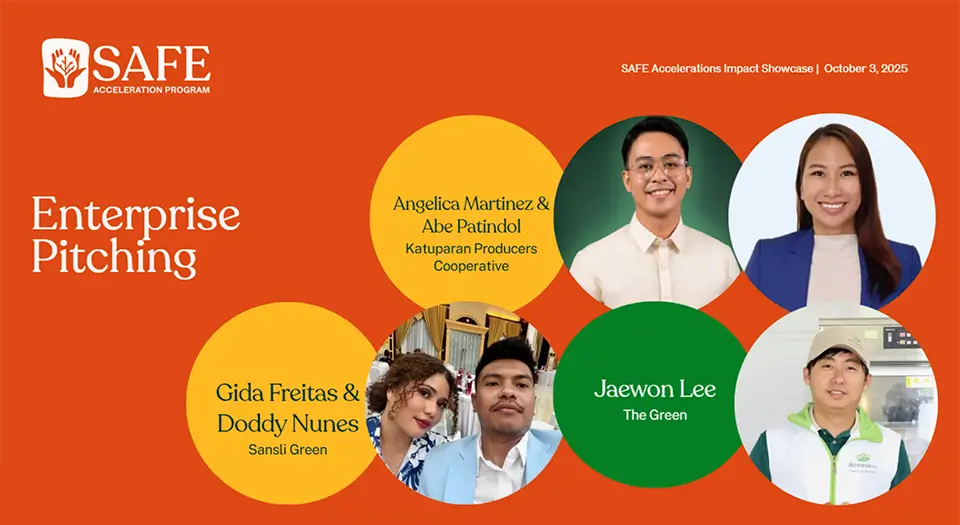
Each enterprise showcased how local innovation and inclusive leadership can drive measurable impact for farmers. Explore the business models, impact metrics, and growth plans through the SAFE Diligence Book at bit.ly/SAFEDiligenceBook
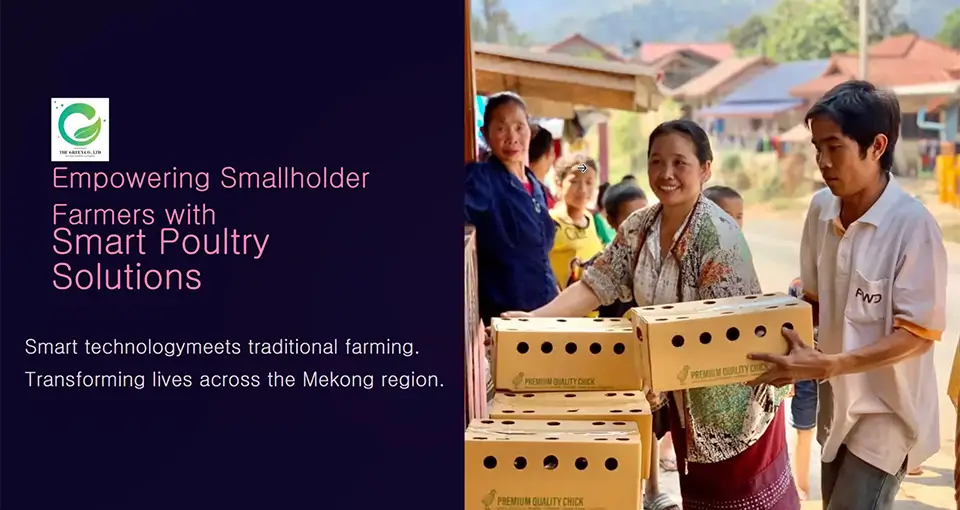
The Green (Lao PDR) supports rural and women-led farms through poultry production, veterinary services, and cold-chain systems, reducing chick mortality to under 1 percent and boosting farmer incomes through climate-smart practices. Founded in 2021, it has partnered with over 300 farms with a vision to help women earn incomes above the national average. The Green is also developing an AI tool for diagnosing poultry diseases and seeks partnerships with agriculture ministries, nongovernmental organizations, and research institutions to expand its reach to 1,000 farmers by 2026.
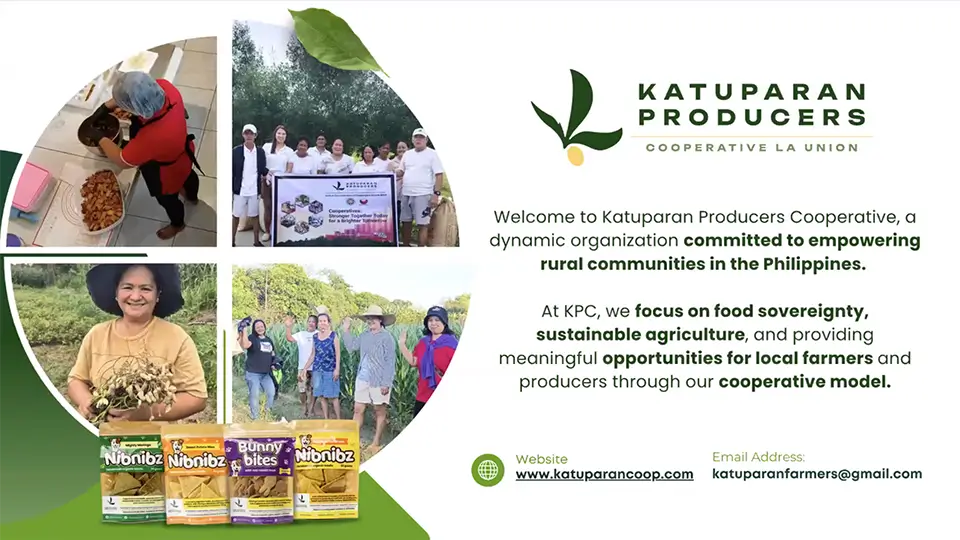
Katuparan Producers Cooperative (KPC) in La Union, Philippines is a farmer-led enterprise producing sustainable pet food and therapeutic foods from sweet potato, peanuts, cassava, moringa, and rabbit meat. Established in 2024, KPC promotes regenerative agriculture, diversifies farmer incomes, and fosters community resilience through women's participation and leadership in production. With new investment, KPC plans to upgrade machinery, secure manufacturing accreditation, and expand its cooperative operations to reach over 100 stores and support 500 families by increasing their incomes by 30 percent within five years.
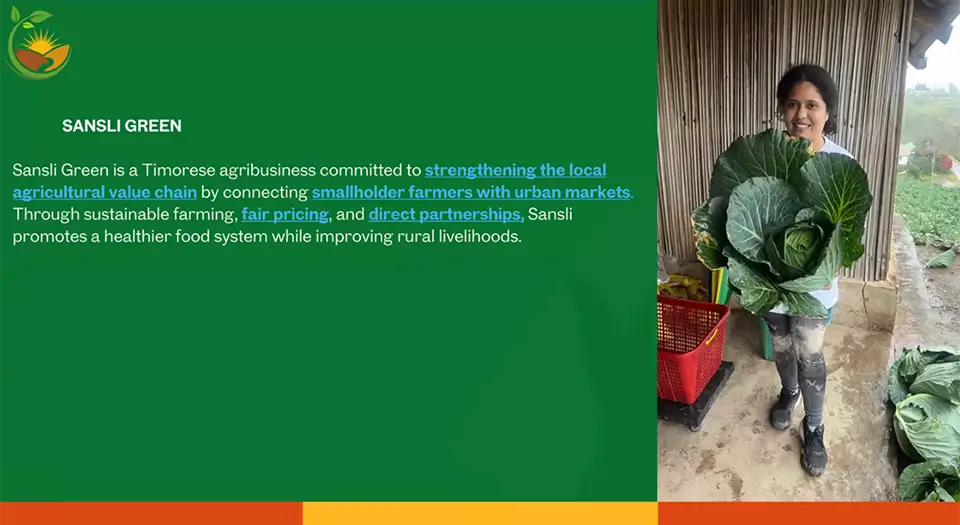
Sansli Liz Unip (Sansli Green) connects smallholder farmers in Timor-Leste to reliable markets, including the national school meal program, while advancing women's leadership in agriculture. Founded in 2024, Sansli Green has supported over 100 farmers and provided nutritious local produce to 5,000 schoolchildren. With additional investment, the enterprise plans to expand cold storage, improve logistics, and train more farmers in organic farming to increase yields and incomes sustainably.
Speaker Insights
Beyond enterprise achievements, experts at the Impact Showcase emphasized how innovation ecosystems can sustain and amplify such impact.
The event convened more than 70 investors, ecosystem enablers, government partners, and development organizations to celebrate the cohort's progress and promote cross-sector collaboration for resilient agri-food systems.
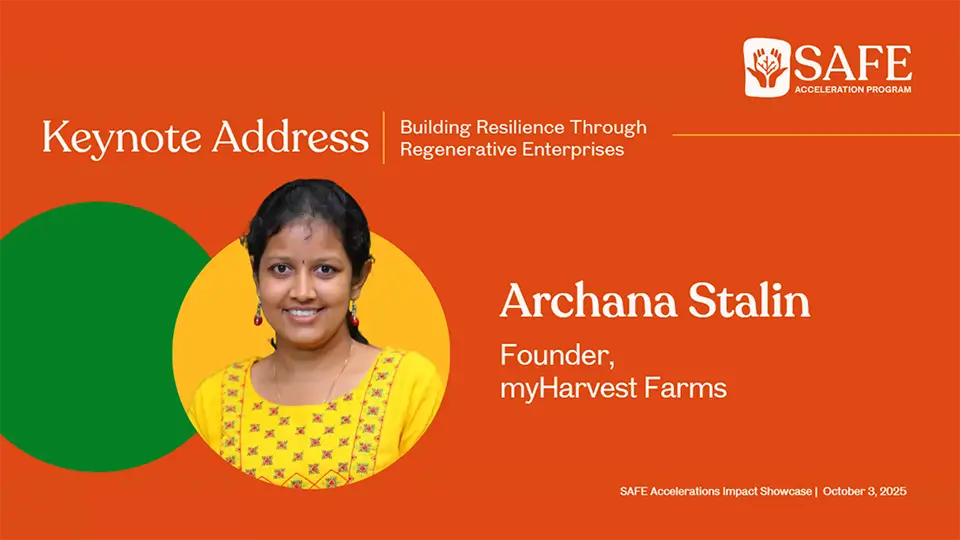
Ms. Archana Stalin, Co-Founder of myHarvest Farms, shared how regenerative agriculture begins by linking consumers to the food they eat and farmers to fairer livelihoods.
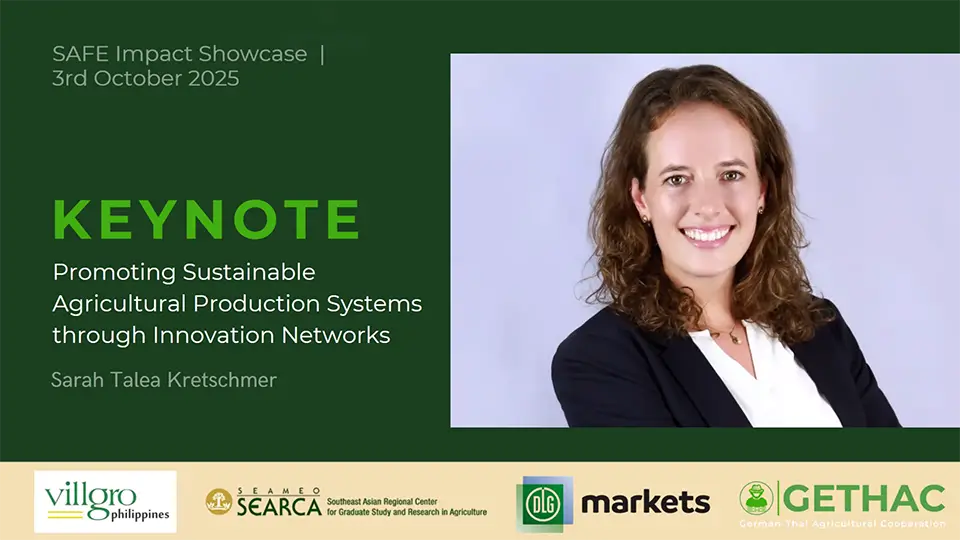
Ms. Sarah Kretschmer, Innovation and Network Specialist at DLG Markets GmbH, underscored that climate resilience grows when localized innovation is backed by inclusive policies and funding ecosystems that reward sustainability.
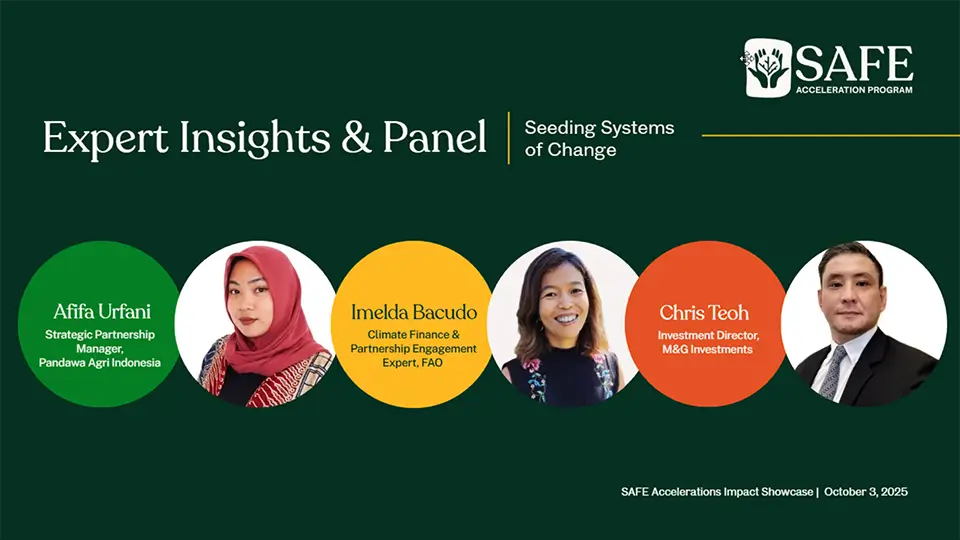
An expert panel composed of Ms. Imelda Bacudo of the Food and Agriculture Organization of the United Nations (FAO), Ms. Afifa Urfani of Pandawa Agri Indonesia, and Mr. Chris Teoh of responsAbility Investments AG discussed how partnerships, financing, and ecosystem alignment can drive the future of regenerative agriculture in Southeast Asia.
Stakeholders highlighted several key requirements for driving regional transformation in climate-resilient agriculture. Investors seek enterprises with strong governance, measurable impact, and scalable business models. Moreover, inclusive partnerships must elevate farmer voices, local innovation, and shared ownership. Ultimately, collaboration across policy, finance, and enterprise is essential to scale regenerative agriculture that benefits both farmers and the planet.
Sustaining Impact through Collaboration
The success of The Green, Katuparan Producers Cooperative, and Sansli Green reflects the growing momentum for climate-smart and regenerative agriculture in Southeast Asia. The SAFE Acceleration Program has shown that with the right mentorship and collaboration, agri-enterprises can achieve both profitability and purpose.
As the program concludes, its legacy continues through the enterprises and partnerships it has strengthened—advancing a shared vision where gender-inclusive and sustainable agriculture drives growth, equality, and environmental resilience across the region. Investors and development partners are encouraged to engage with these emerging enterprises to help scale their solutions and sustain impact for farmers and communities.
Watch an overview of the SAFE Acceleration program:
Watch the spotlights on SAFE Acceleration enterprises:
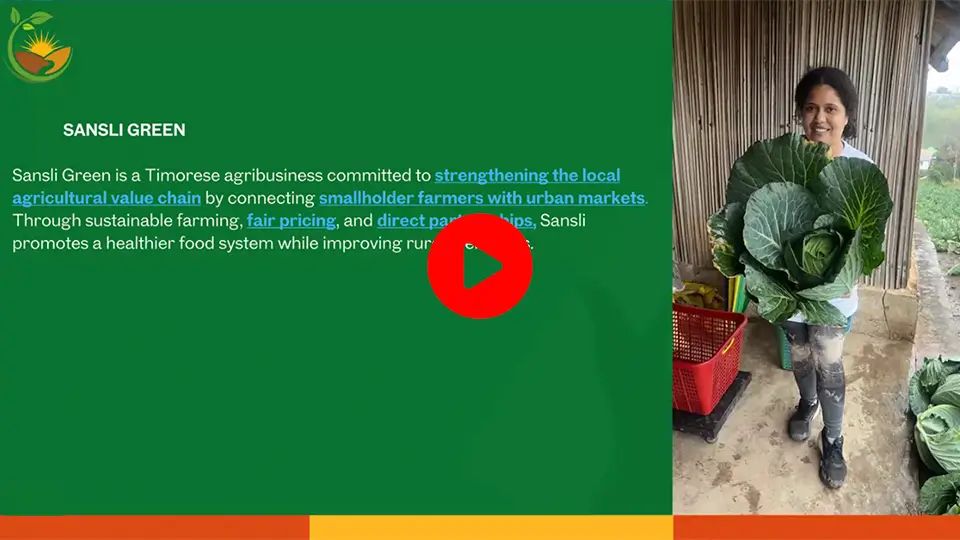
Sansli Liz Unip (Sansli Green)
